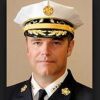Like many other FireRescue1 readers, I’ve read a lot of after-action reports through the years. It’s never an easy thing to do when firefighter fatalities or injuries are involved, but we owe it to our fallen brothers and sisters to identify any possible lessons from their experiences, and do whatever we can to prevent such tragedies from occurring in the future.
The “Serious Accident Investigation Report” on the June 30 Yarnell Hill Fire that claimed the lives of 19 Granite Mountain Hotshots outside Prescott, Ariz., is an especially difficult read. But it is one that everyone should make time for, regardless of where you work and whether or not you ever expect to fight a raging wildland fire. I also hope this document will be widely distributed outside the fire service, since I think our elected officials, citizens and other policymakers will also benefit from understanding how these brave men perished.
While this report, like any other of its type, cannot answer every question about what happened on that terrible day, many of the issues identified by the investigation team are familiar ones. Despite their well-documented training, experience, fitness, teamwork, and high degree of motivation, these courageous firefighters were literally overtaken by the confluence of multiple factors over which they generally had limited control.
Beyond the issues listed in the report that contributed to the rapid deterioration of the tactical situation on the ground that day, there are several findings with potentially broad implications beyond the fire service. Most notably, it’s important to understand that the Granite Mountain Hotshots — like their wildland, structural, and fellow firefighters everywhere — placed their lives in danger as a result of public policy decisions made by others, at multiple levels of government, long before they received the call and responded to Yarnell Hill from Prescott Station Seven.
RIP brothers; you will never be forgotten.


